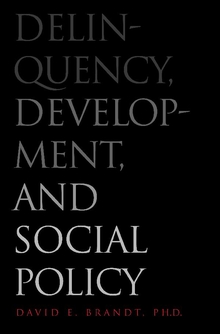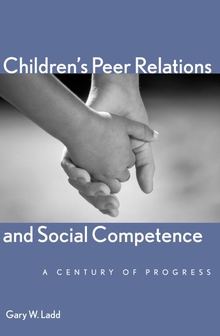Delinquency, Development, and Social Policy
WARNING
You are viewing an older version of the Yalebooks website. Please visit out new website with more updated information and a better user experience: https://www.yalebooks.com
David E. Brandt, Ph.D.
In this book, David E. Brandt examines the legal, psychological, and cultural issues relevant to understanding antisocial behavior in adolescence. Based on his own research and a broad analysis of recent work in the field, Brandt identifies the factors that are common in cases of delinquency.
The discussion considers the long-term effects of social issues such as poverty as well as psychological issues such as the high levels of stress and anxiety suffered during childhood by many delinquents. He shows how a failure to meet the developmental needs of children—at both the family level and at a broader social and political level—is at the core of the problem of juvenile delinquency. Brandt concludes with an inquiry into how best to prevent delinquency. Programs that address the developmental needs of children, Brandt argues, are more effective than policing, juvenile courts, or incarceration.
David Brandt is professor of psychology at John Jay College of Criminal Justice, CUNY.
Publication Date: January 18, 2006
11 tables + graphs














